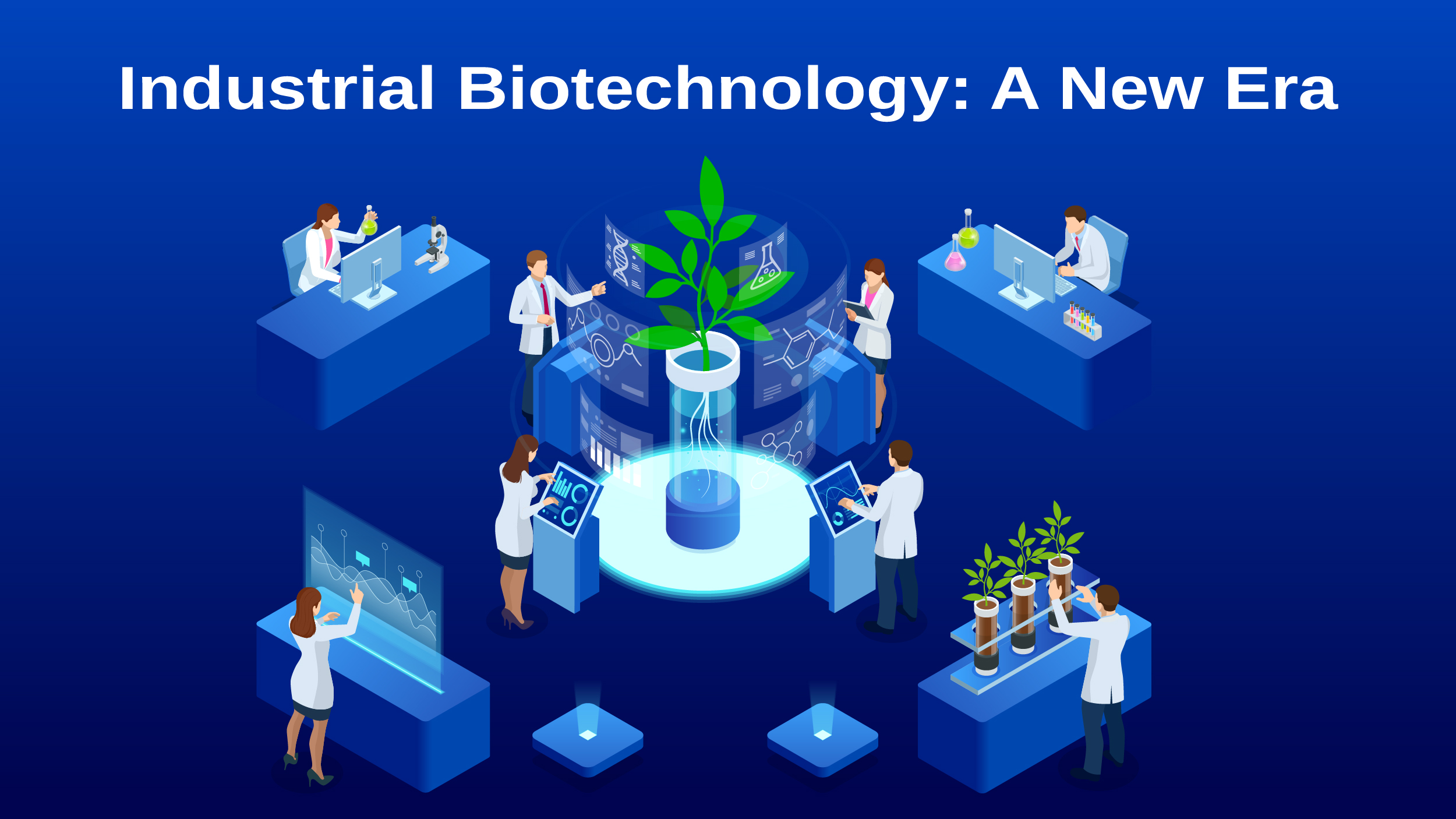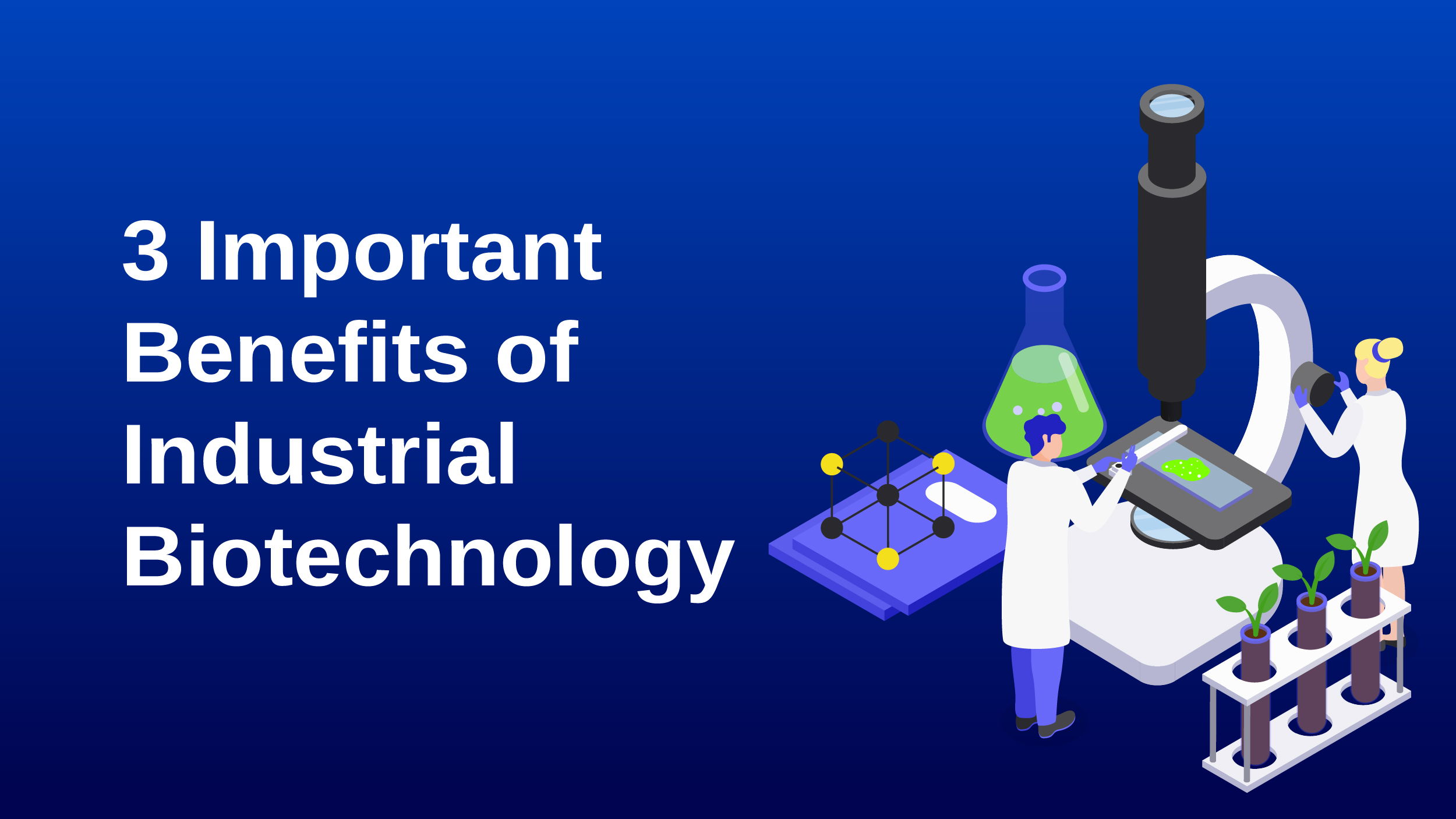In an era where sustainability and innovation are paramount, industrial biotechnology emerges as a beacon of hope. Often dubbed the “third wave” in biotech, it stands at the forefront of pollution prevention, resource conservation, and cost efficiency. This cutting-edge discipline harnesses the power of living organisms to revolutionize industrial processes, offering a transformative pathway toward a greener, more prosperous future.
In this exploration, we delve into the world of industrial biotechnology, unveiling its potential to reshape industries and pave the way for a more sustainable tomorrow.
Let’s get started!
What is Industrial Biotechnology?
Industrial biotechnology applies modern biotechnology techniques to process and produce sustainable chemical products, materials, and fuels. By utilizing enzymes and microorganisms, this biotechnological process generates valuable products for various industrial sectors, such as chemicals, pharmaceuticals, nutrition, paper, textiles, energy, and polymers, all derived from renewable raw materials.
The technology holds great promise for pollution prevention, resource efficiency, and cost savings. If fully realized, it could surpass the impact of healthcare and agricultural biotech. This approach enables businesses to cut expenses, open new markets, and safeguard the environment.
A recent OECD study says that by 2030, about 39% of the economic value from biotechnology will come from its industrial applications. This shows that there’s some serious cash being pumped into research and development in this field!
Industrial Biotechnology: A New Era

Around 6,000 years back, biotech got its start during the whole agriculture revolution thing!
Industrial biotechnology makes a significant contribution to cost reduction and the creation of new markets while also protecting the environment. There are different types of biotechnology such as health care and agricultural biotechnology but in the future, as the technology advances it will have a greater impact on the world.
It is a comparatively faster and easier path to reach the market because many industrial products don’t have to undergo the extensive review procedures that medical products do. The new industrial processes now go from lab study to commercial implementation in just two to five years, whereas drugs (medical products) can take almost ten years.
Working with nature to enhance and improve the existing biochemical pathways that can be employed in manufacturing is what it is all about. To identify and improve these natural enzymes, industrial biotechnology companies employ a variety of specialized procedures. With the increasing application of multiple scientific disciplines to industrial technology, the adoption of Metabolic engineering among these disciplines has grown increasingly important.
This is due to an increased adoption of more and more industrial processes based on biotechnology. The purpose of metabolic engineering is to use genetic manipulation to increase the production of compounds of industrial purpose in microorganisms that serve as cell factories in this context. Also, a Genomic study on Microorganisms is now assisting researchers in capitalizing on the genetic variety found in microbial populations.
Biotechnology’s application to industrial processes is rapidly reshaping the way we create certain products and has also offered ways of introducing new products that were previously unimaginable.
Also Read: Exploring the Potential of Big Data Analytics in Healthcare
3 Important Benefits of Industrial Biotechnology

Industrial biotechnology can successfully tackle issues like pollution, resource conservation, cost reduction, etc. However, it has even more crucial benefits that can impact our daily lives.
● Economic Benefits
As we know the modern application of this technology consists of sustainable processing, production of chemical products, etc., considering its economic benefit is unskippable. Its economic impact largely depends on technological advancements, policy frameworks, feedstock prices, and overall demand.
From enzymes in the chemical industry transforming production processes to feedstock prices becoming important due to fine chemicals moving to the commodities section, the economic benefits of industrial biotechnology are many.
● Environmental Benefits
Sustainable production processes rely on an essential tool, offering immense potential to mitigate adverse pollution effects. This approach holds the promise of reducing air and water pollution, cutting down on energy consumption, minimizing waste, and more.
● Society-based Benefits
Apart from economic and environmental benefits industrial biotechnology has many societal benefits as well. As it makes industries more sustainable it can further help in many society-based factors as well such as – developing new technological platforms, creating job opportunities or job retention, reducing our dependence on non-renewable resources, and so on.
Where Industrial Biotechnology Can Go?
The technology has opened up a wide array of biologically produced products, from pharmaceuticals to biofuels and novel polymers. Advances in technology, including omics tools and machine learning, have expanded the scope of what can be achieved. Enogen™ corn, for instance, showcases the future of bioprocessing with its plant-produced, heat-activated enzyme, reducing costs and resource usage. Extremophiles, organisms thriving in extreme conditions, hold promise for producing valuable compounds like renewable biodegradable plastics. These innovations not only broaden product options but also drive down costs in this technological landscape.
Electrotrophic bacteria offer a unique way to convert renewable electricity into fuels and chemicals, directly reducing CO2. This innovative approach shows promise in producing building block chemicals using primarily CO2 and electricity. The US Department of Energy is exploring its potential for creating high-value renewable products.
In addition to living organisms, cell-free biomanufacturing systems are emerging as a powerful tool for energy and chemical manufacturing. These systems allow precise control of reactions and offer lower catalyst costs. They pave the way for new sustainable manufacturing practices, providing viable alternatives to fossil fuel-derived chemicals. As industrial biotechnology matures, the focus shifts towards creating efficient and cost-effective processing solutions. The choice between biological and chemical conversion is driven by finding the best solution, reflecting a more integrated approach. With a wide range of sustainable chemicals on the horizon, the challenge lies in aligning production with market demand and product margins.
Bottom Line
As we stand on the cusp of a new industrial revolution, industrial biotechnology emerges as a powerful force for positive change. Its ability to mitigate environmental impact, conserve resources, and reduce costs places it at the forefront of modern innovation. From revolutionizing manufacturing processes to creating entirely new products, the potential of industrial biotechnology is boundless. It offers a compelling vision of a future where industry harmonizes with nature, driving progress and prosperity for generations to come. Embracing this remarkable field is not just an option; it is imperative for a sustainable and thriving world.




